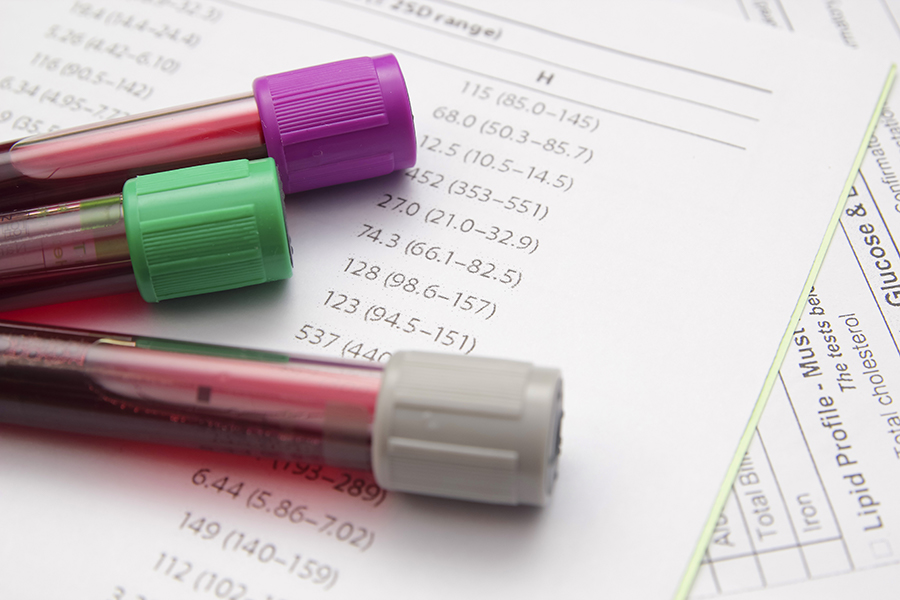The Most Important Nutrient(s) for the Brain
Author: Ron Hunninghake, MD
 When was the last time you ran out of gas? If I had to guess, it has probably been quite a while. If you ever have though, you know that it is an unforgettable inconvenience and embarrassment that you probably don’t want to experience again. Luckily, most modern vehicles now have all kinds of bells and whistles to let you know when your fuel tank is getting low. You can watch your fuel gauge and respond to those warning signals by going and filling up your gas tank. Thus, you probably rarely run out of gas.
When was the last time you ran out of gas? If I had to guess, it has probably been quite a while. If you ever have though, you know that it is an unforgettable inconvenience and embarrassment that you probably don’t want to experience again. Luckily, most modern vehicles now have all kinds of bells and whistles to let you know when your fuel tank is getting low. You can watch your fuel gauge and respond to those warning signals by going and filling up your gas tank. Thus, you probably rarely run out of gas.
Our cars aren’t the only things that run out of gas. Unfortunately, our brain and body do not come with a simple instrument panel to alert us to an impending “empty fuel tank.” Instead, we get all these annoying emotional and physical signals that often don’t make any sense, other than we just “feel terrible.” When was the last time you overslept, or forgot where you left your cell phone, or missed an important meeting? Or maybe your mood tanked and irritability, depression, and anxiety started to creep in. What about that time you felt so tired that you didn’t even have enough energy to fall asleep effectively? Contrary to popular belief, these things aren’t just part of getting older. They are the bells, whistles, and lights on the dashboard, telling you that you are nearing brain drain!
You may be tempted to pop a vitamin pill or even a cookie into your mouth to try to feel better, but it’s rarely enough. The human brain is primed to seek sugar and sweets because most of our cellular energy comes from carbohydrates and fats. In a pinch, even protein can be converted to carbs. However, refined foods will not give our brain cells the energy they need to function optimally. Sadly, nearly 70% of food found in most supermarkets and fast food restaurants is processed and very poorly metabolized in our bodies.
Brain Cells Need Complex Nutrients
Even though our brain is only about 5% of our body weight, it uses 20% of our daily energy requirement. Our cellular engine must be primed, tuned, and fully supported by an important array of biochemical nutrients, including key vitamins, minerals, special omega fats, phytonutrients, and a host of diverse metabolic factors.
For example, brain power is primarily electrical. Our neurons can conduct signals along structures called axons and dendrites – the wiring system of all our peripheral nerves and brain centers. These wires are highly complex with fatty acid insulation sheathes that are dependent on the right omega oils in our diet.
Now, Back to Key Question…
What is The Most Important Brain Nutrient?
Dr. Hugh Riordan, a psychiatrist, used to ask this question at his lectures. Attendees guessed the common vitamins and nutrients, not knowing it was a bit of a trick question. The real answer, he would say is “It’s the one (or the ones) you are lowest in,” explaining that “Your team of nutrients is only as strong as your weakest player(s).”
This always led to another important question: how can we possibly know which brain nutrients are deficient? Which ones are our weakest players?
Measure-Measure-Measure
The Riordan Clinic was founded by Dr. Hugh and Olive W. Garvey under the original name “The Center for the Improvement of Human Functioning.” We are the original home of Functional Medicine, which, along with Integrative Medicine, is how we brand our kind of medical care. Functional medicine, in the simplest terms, is the measurement of key bodily functions that are needed to maintain and improve health. We base all of our recommendations on accurate, scientific measurements of key nutrients and other physiologic functions.

Should you wonder about your own reserve of key brain nutrients, consider looking into our Brain & Mental Health Profile.
riordanclinic.org/lab_tests/brain-profile
Below are some of the key nutrients measured in the profile, and why they are important to your brain health.
Vitamin A
Investigations into the influence of vitamin A on cognitive abilities have proven that older people with a vitamin A deficiency suffer memory and other thinking impairments. 10,000 units per day is enough.
Vitamin D & K
A study of 320 cognitively healthy men and women between the ages of 70 and 85 found those with higher blood concentrations of K1 had better brain speed and verbal episodic memory. This is the ability to recall and mentally re-experience specific episodes from one’s personal past (like where you left your car keys).
Vitamin E
When your vitamin E level drops, the liver has a tougher time sending vitamin E to the to the brain. That is where it is used to make the compound called DHA-PC – the form that goes into membrane construction. 90% of Americans are deficient in vitamin E
Choline
Choline was only given essential nutrient status in 1998. It has important roles in cell membrane signaling, protecting the brain against free radicals, maintaining brain mass, supporting energy, and prolonging normal levels of acetylcholine and other key neurotransmitters.
Nutrition is one piece (a very important piece) of the brain health puzzle. Exercise, lifelong learning, and connecting with others are other valuable pieces to incorporate into your lifestyle to promote healthy brain function for many years to come.





